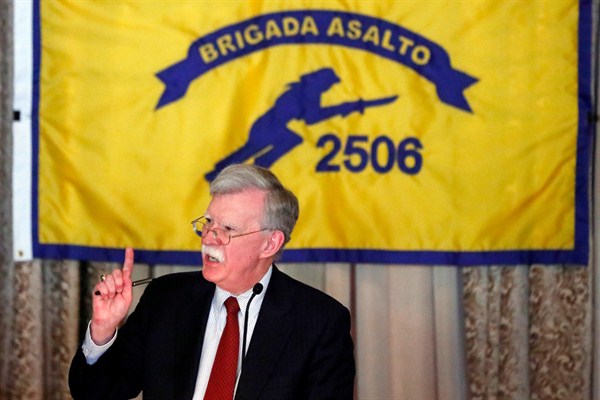The Trump administration yesterday announced a number of new sanctions and restrictions on dealing with Cuba, including new limits on remittances and nonfamily travel to the island from the United States. In a reversal of more than two decades of U.S. policy, the administration also said it would allow Cuban Americans whose property was seized during the Cuban revolution to sue foreign companies operating on that property. A law passed in 1996 had originally allowed such claims, but that provision in the law had been waived by every president, until now.
To understand the implications of this move, WPR spoke with contributor William M. LeoGrande, an expert on Latin America at American University and the co-author of “Back Channel to Cuba: The Hidden History of Negotiations between Washington and Havana.” The following transcript has been lightly edited for length and clarity.
World Politics Review: How did the Helms-Burton Act, the law allowing foreign companies to be sued for operating on property seized during the Cuban revolution, come about?

